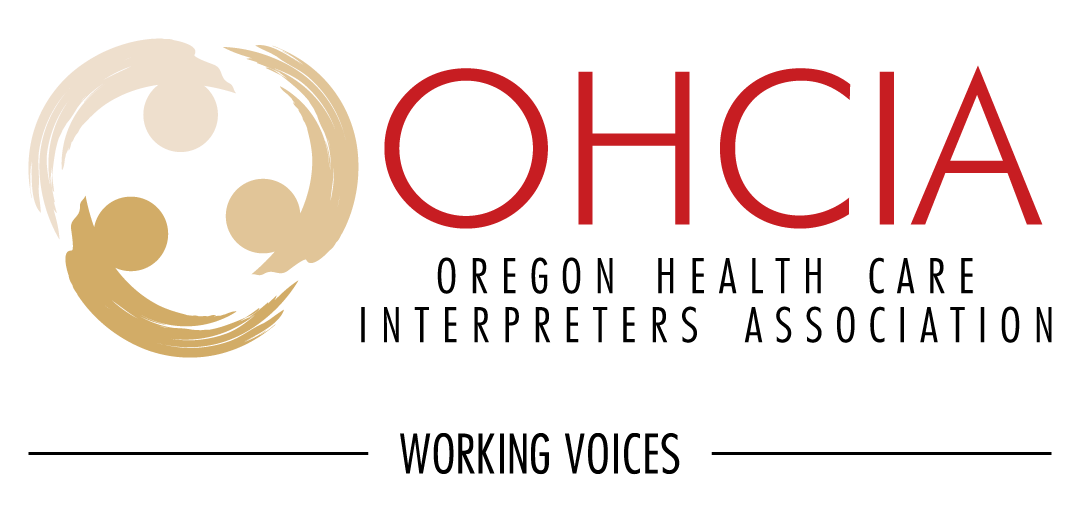Become an Interpreter
Working as a Health Care interpreter is an exciting opportunity to make a difference in the lives of limited English Proficient (LEP) patients. Many interpreters express a high level of satisfaction in their work.
Let’s look at some specifics of this integral role.
What is a Health Care Interpreter?
The Health Care interpreter (HCI) is an essential part of the medical team. Interpreters offer a language and culture bridge between a Health Care professional (like a doctor, nurse, dentist, etc.) and a limited English proficient (LEP) patient. This ensures the proper communication that allows for the LEP patient to receive quality medical care.
A trained and certified/qualified HCI will understand the terminology, standards of practice, and cultural competencies necessary to provide accurate interpretation. Using an ad hoc interpreter (one who is not trained, or a family member or bilingual health professional) is statistically more likely to result in inaccurate interpretation and worse health outcomes.
Benefits and Responsibilities
The Certification Commission for Healthcare Interpreters offers a helpful two page pdf giving an overview of the benefits and responsibilities of a health care interpreters.
Frequently Asked Questions
What is required to become a Health Care Interpreter in Oregon?
In addition to fluently speaking English and one or more target languages, Health Care interpreters in Oregon are expected to become state certified or qualified. Learn More.
Becoming a Qualified or Certified Interpreter
Learn more about becoming a qualified or certified HCI.
Where do I find work?
Although it is possible to be hired directly as an interpreter by a medical clinic or hospital, the majority of Health Care interpreters in Oregon work as independent contractors for a language service provider, which is also called an interpreter agency. These agencies contract with hospital systems and the government to provide in person and telephonic (via phone or video) interpretation.
Help me understand the independent contractor part.
When working for an interpreter agency, you will give your availability and the agency will call you with specific assignments to interpret as they come up. In essence you are self-employed; the agency pays you for hours worked, and you are responsible for paying and filing your own taxes and providing your own medical insurance. Since you are an independent contractor, you are not bound to work for just one agency, and many interpreters work for two or more agencies.
What are some interpreter agencies in Oregon?
Below is a list of agencies. Each agency will have its own standards and requirements for working with them. If your agency is not on this list, please email us at support@ohcia.org.
Related Councils/Organizations
National Council on Interpreting in Health Care (NCIHC)
Oregon Council on Health Care Interpreters
International Medical Interpreters Association (IMIA)
California Healthcare Interpreting Association (CHIA)
Certification Commission for Healthcare Interpreters (CCHI)
National Board of Certification for Medical Interpreters (NBCMI)
Oregon Society of Translators and Interpreters (OSTI)
Health Care Interpreter Ethics and Standards
National Council on Interpreting in Health Care Ethics
National Council on Interpreting in Health Care Standards
International Medical Interpreters Association Standards
California Healthcare Interpreting Association Standards
PUBLICATIONS
Why Interpreters Matter
Imagine yourself as one of the 25 million limited English proficient (LEP) individuals across the United States, who struggle or are unable to communicate in English. Picture yourself going to the doctor, and the emotions felt as you realize that your understanding of your health is in someone else’s hands. Feels perhaps scary or stressful, doesn’t it?
This is why Health Care interpreters matter. They are the sole effective communication bridge between the doctor (or other health professional) and the LEP patient. Not only do these interpreters understand both languages, but they have been trained to be culturally sensitive, ethically conscious, and able to explain medical terminology accurately. Their job exists to make sure that LEP patients get the same quality of Health Care as everyone else.




